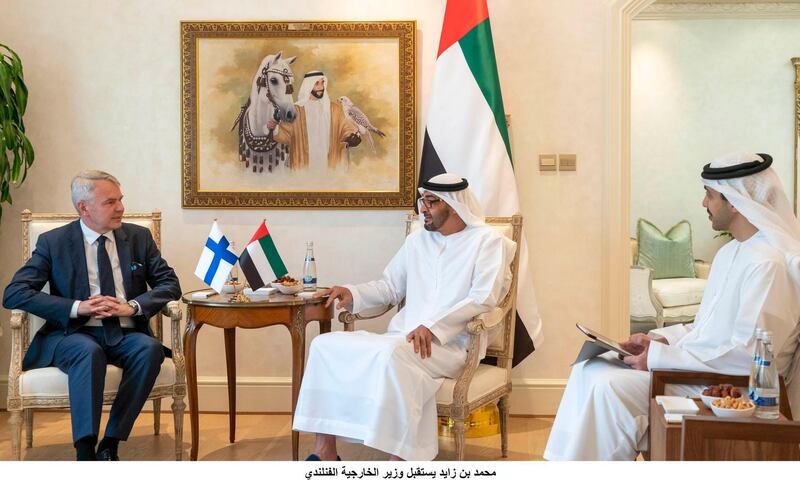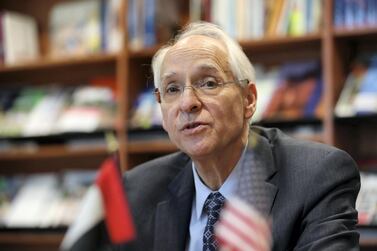The UAE is seeking a balanced and peaceful solution for stability in Sudan, the EU envoy to Sudan said on Wednesday, a week after military rulers and opposition parties in Khartoum signed a power-sharing agreement.
Pekka Haavisto, who is also the Foreign Minister of Finland, conveyed the European Union’s message of support towards the deal during his visit to Abu Dhabi.
"My understanding was that UAE officials were very positive to the developments in Sudan and were genuine," Mr Haavisto said in a telephone interview with The National. "They are also seeking a balanced solution for Sudan to pave the way towards a permanent regime and legislative body in the country."
Sudan's ruling military and the pro-democracy movement agreed on a joint sovereign council last week that will rule the country for a little over three years while elections are being organised. The deal comes after intensive efforts and pressure from regional and international powers.
Since being appointed to the post in June, Mr Haavisto has attended negotiations in Sudan, Ethiopia, Egypt, Saudi Arabia and the UAE, where different sides are attempting to present their concerns and visions for a new Sudan.
“My discussions in Abu Dhabi, Jeddah and Cairo [concluded] that regional leaders have reached a consensus that it’s time to support the negotiation results,” Mr Haavisto said.
The UAE has consistently supported talks in Sudan since authoritarian leader Omar Al Bashir was removed by the military in April. Together with Saudi Arabia, the UAE provided Sudan with an emergency $3 billion (Dh11bn) aid package soon after Mr Al Bashir's removal to support the impoverished nation.
Additionally, Ethiopia has stepped up its efforts to resolve the political crisis in Sudan since the deadly June 3 dispersal of a long-running protest camp outside army headquarters.
At least 128 people have been killed in the crackdown, doctors linked to the protest movement say. The health ministry put the June 3 death toll at 61 nationwide.
“I think the rule of the Ethiopian Prime Minister, Abiy Ahmed, has been well recognised in the region as well as his desire to help the new Sudan and to negotiate,” said the official.
Mr Haavisto, 61, has a long background in international conflict resolution and described the Sudanese situation as “unique by nature because the region is now embroiled” in the crisis.
It is different especially after the impact that the social movement has made in the country, the minister said.
“This is the chance to share peace with people from all parts of Sudan,” Mr Haavisto said, adding “if this perspective continues then the agreement reached last week can hold.”
The EU has provided extensive humanitarian support to Sudan, especially to marginalised areas, he said.
“When the final peace agreement is signed we think it’s time for the United States to reconsider their listing of Sudan as a country that sponsors terror,” Mr Haavisto said.
Shortly after the ousting Mr Al Bashir in April, Washington said last month that it would consider new ways to remove Sudan from its list of state sponsors of terrorism if it sees a fundamental change in its government and a commitment not to support terrorism, a State Department official said.
The US government blacklisted Sudan in 1993 over allegations that Al Bashir’s government supported terrorism.
The designation makes Sudan ineligible for desperately needed debt relief and financing from lenders like the International Monetary Fund and the World Bank.
The State Department officials said any new government must demonstrate it is not "supporting acts of international terrorism" and provide assurances "it will not support acts of international terrorism in the future".
The removal would provide the opportunity for investment in Sudan, Mr Haavisto said, adding “it’s important to get the private sector to flourish as soon as possible.”
He continued: “It would also encourage investment in the country; there is a big diaspora in the region and in EU and US who are looking for opportunities to reinvest in their country.”







